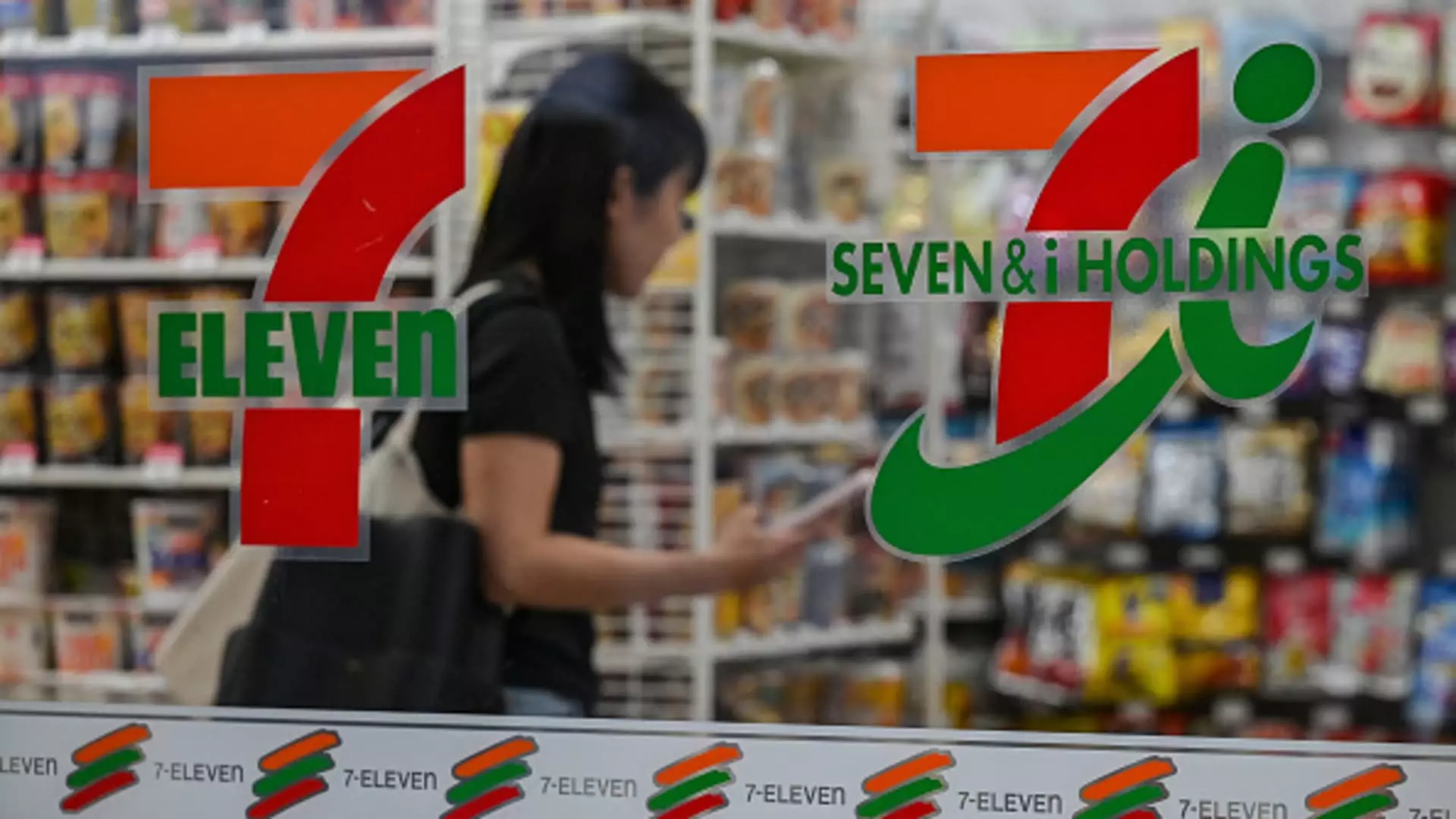Seven & i Holdings, a prominent figure in Japan’s convenience retail sector, is undergoing a significant transformation as it grapples with a confluence of challenges, including disappointing earnings projections and an aggressive takeover proposal from Alimentation Couche-Tard (ACT) of Canada. Recent announcements from the company highlight a stark reevaluation of its financial forecast, as well as a move toward a strategic restructuring that aims to streamline operations and bolster investor confidence. With an eye on both immediate profitability and long-term sustainability, Seven & i is at a crossroads that could redefine its trajectory.
Seven & i has drastically reduced its profit outlook for the fiscal year ending February 2025, now projecting a net income of 163 billion yen (approximately $1.09 billion), which represents a staggering 44.4% decrease from its previous estimate of 293 billion yen. This downgrade follows a disappointing first-half net profit of 52.24 billion yen against a backdrop of 6.04 trillion yen in revenue. Although sales exceeded initial expectations, they fell short in terms of profitability, highlighting an overarching trend in consumer behavior that has prompted fewer visits to overseas convenience outlets. The company’s acknowledgment of a more cautious approach to spending by consumers is emblematic of broader economic challenges impacting the retail sector.
In addition, the announcement of a 45.88 billion yen charge related to the planned spin-off of the Ito-Yokado Online Supermarket underscores the complexities involved in this restructuring phase. Seven & i’s attempts to redefine its core business landscape are happening against the backdrop of increasing scrutiny from investors, which raises critical questions about management strategy and long-term stability.
Amidst its profit forecast revisions, Seven & i has detailed a restructuring plan aimed at consolidating 31 units into a newly established intermediate holding company focusing on its supermarket food business and specialty stores. This restructuring decision not only reacts to internal pressures for operational efficiency but also aims to preempt potential external takeover threats. The consolidation reflects the growing trend among corporations to shed non-core components, allowing them to concentrate resources on their most profitable ventures.
Such restructuring is essential to alleviate pressure from shareholders and address calls for a more streamlined operations framework. As evidenced by the investor response to ACT’s takeover bid, there exists a palpable tension between the company’s management strategies and shareholder interests—one that Seven & i must navigate carefully in the coming months.
The specter of a hostile takeover looms large as ACT has already made its intentions clear, initially proposing $14.86 per share, a bid that Seven & i rebuffed as not in the interest of its stakeholders. In light of the revised proposal offering approximately $18.19 per share, a clear signal of ACT’s commitment to acquisition emerges, with the offer’s valuation potentially reaching 7 trillion yen if consummated. Should the takeover materialize, it would mark a historic transaction in Japan’s corporate landscape.
The complexities associated with hostile takeover situations in Japan stem from a legal framework that can be both opaque and difficult to navigate. The potential for an acquirer to face resistance from a target’s management is exacerbated by defensive strategies, such as the issuance of “poison pills”—mechanisms designed to dilute the shares held by an acquirer, thereby discouraging any overt attempts to gain control.
Despite the potential for a hostile bid, industry experts believe that outright hostile takeovers are largely unlikely, given the difficulty in securing financing from banks for such endeavors. However, should ACT’s offer reach an appealing threshold, shareholders might push for acceptance, reflecting their frustrations with Seven & i’s current lack of progress in negotiations.
As Seven & i Holdings grapples with both internal and external pressures, the company is at a pivotal moment that could redefine its operational landscape. The convergence of reduced earnings forecasts, strategic restructuring, and potential acquisition frameworks paints a complex picture for the retail giant. With shareholder sentiment in flux, management will need to deftly navigate these waters to restore confidence and chart a sustainable path forward in Japan’s competitive retail space.
The evolution of Seven & i Holdings serves as a microcosm of larger trends affecting the retail industry—trends that underscore the necessity for companies to adapt, innovate, and respond to shifting market dynamics. The coming months will be crucial in determining not only Seven & i’s strategic direction but also its ability to remain a formidable player in an increasingly complex environment.

Leave a Reply